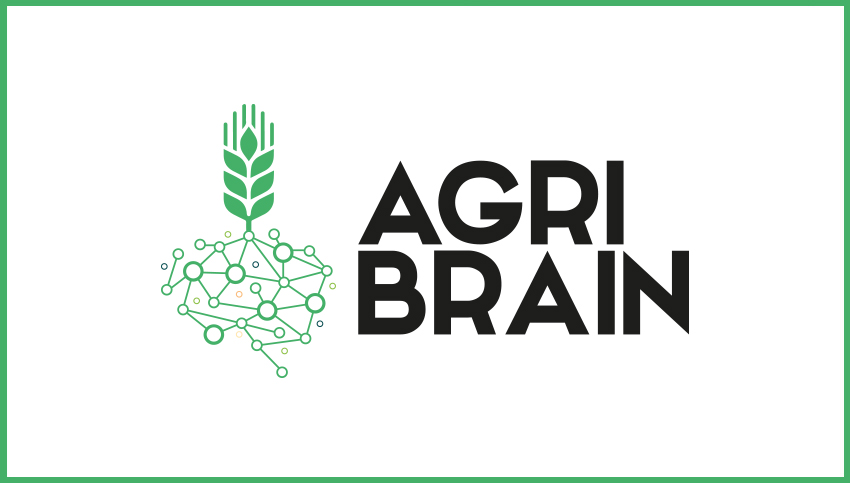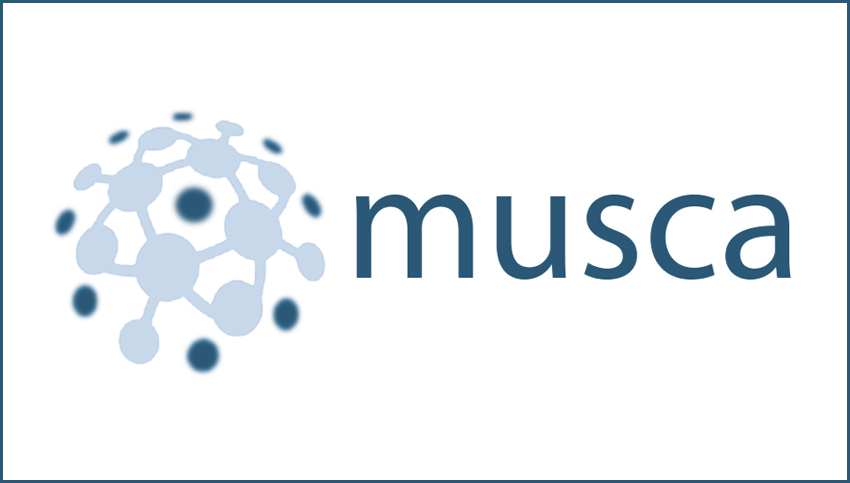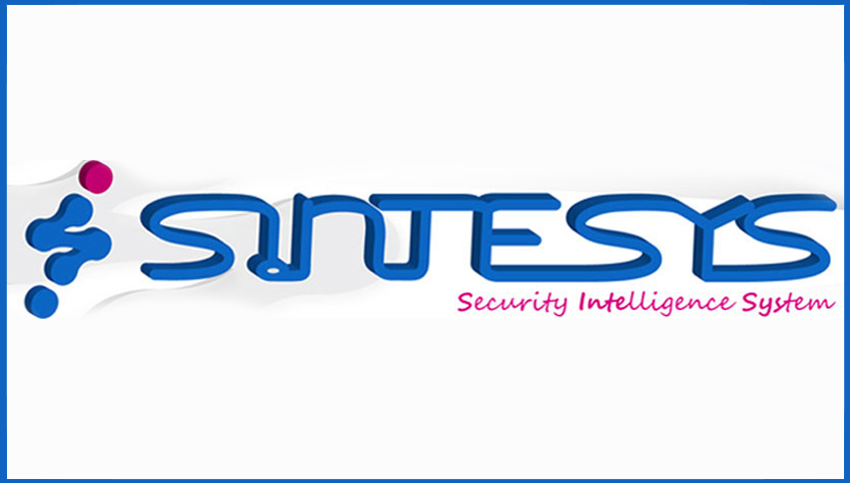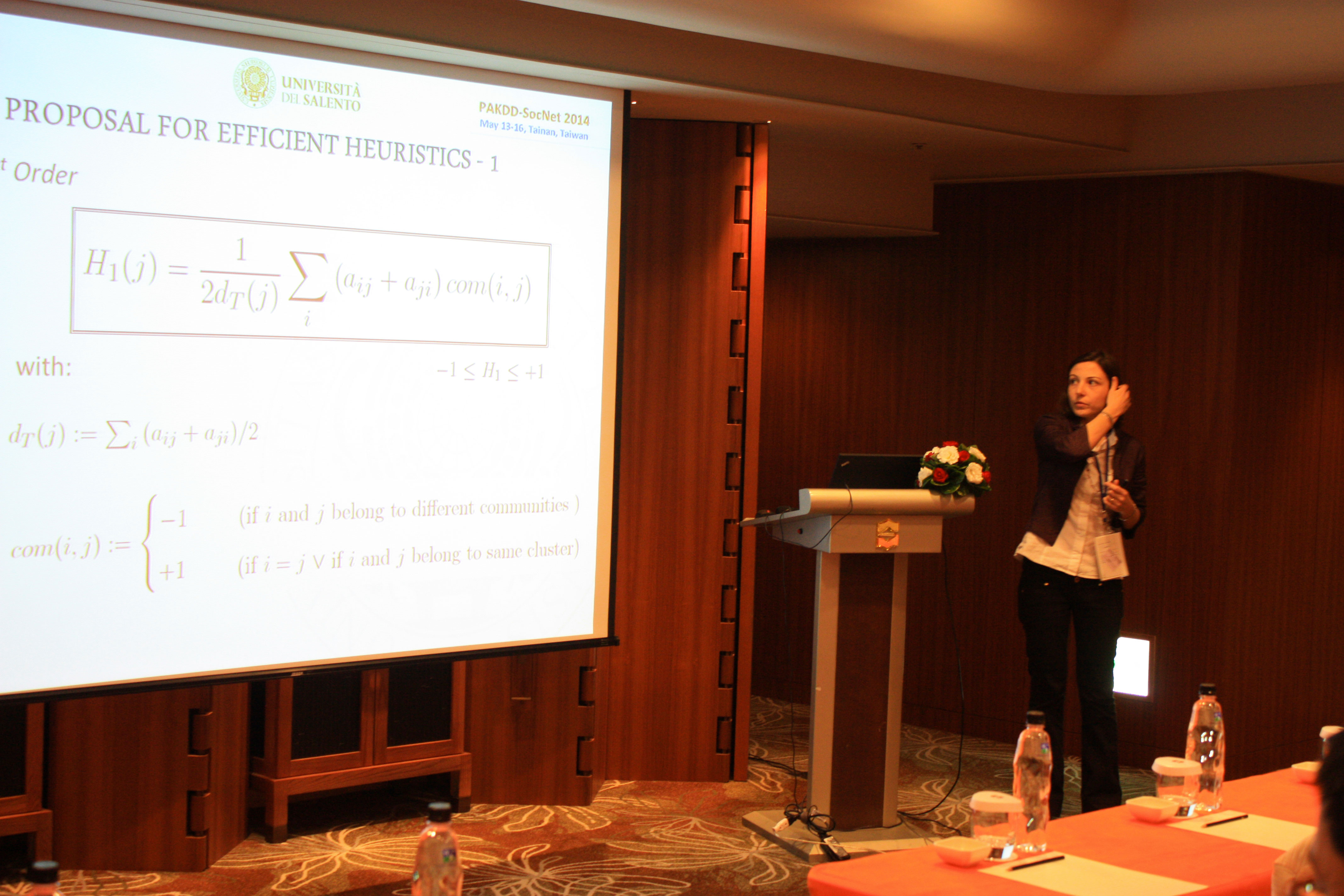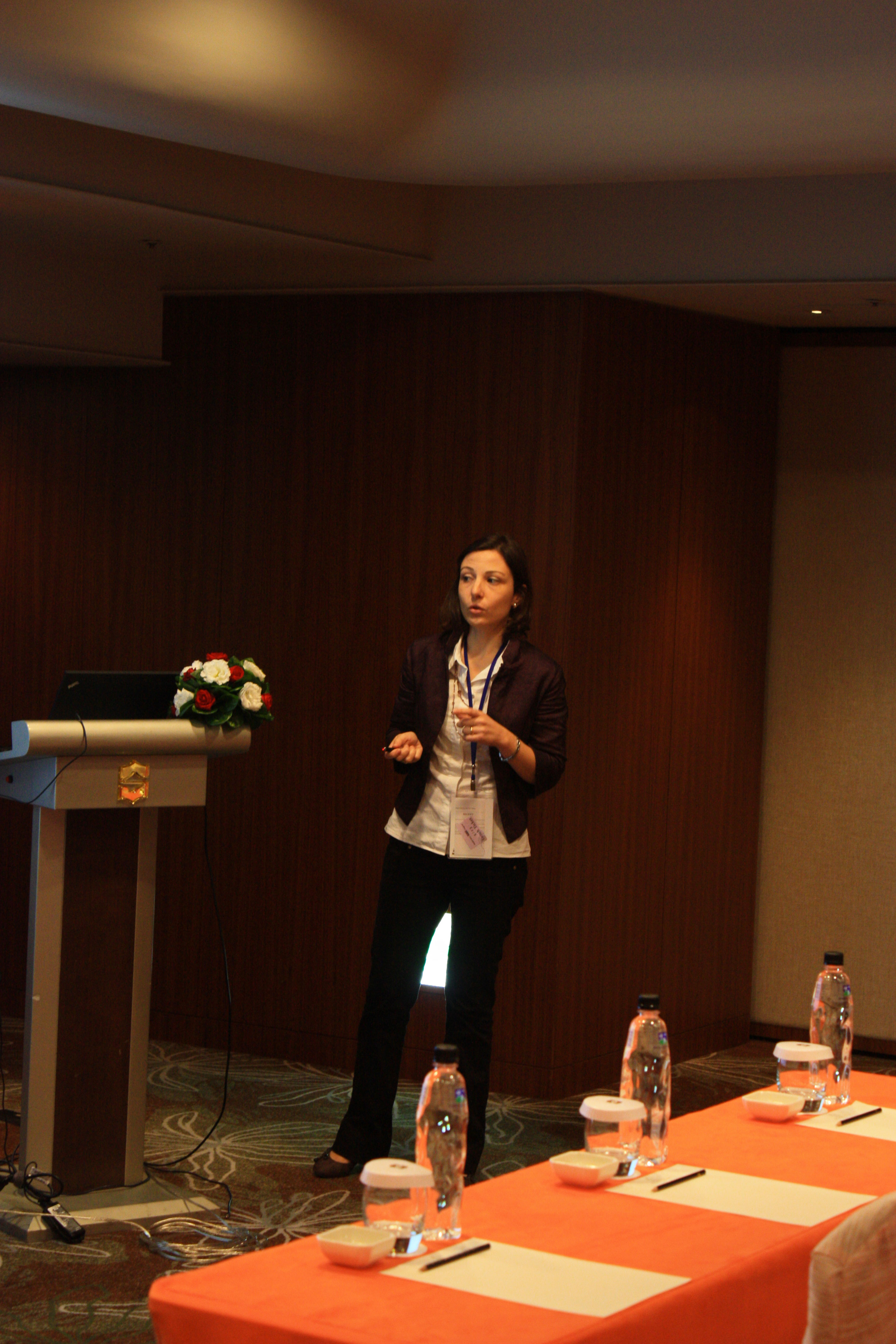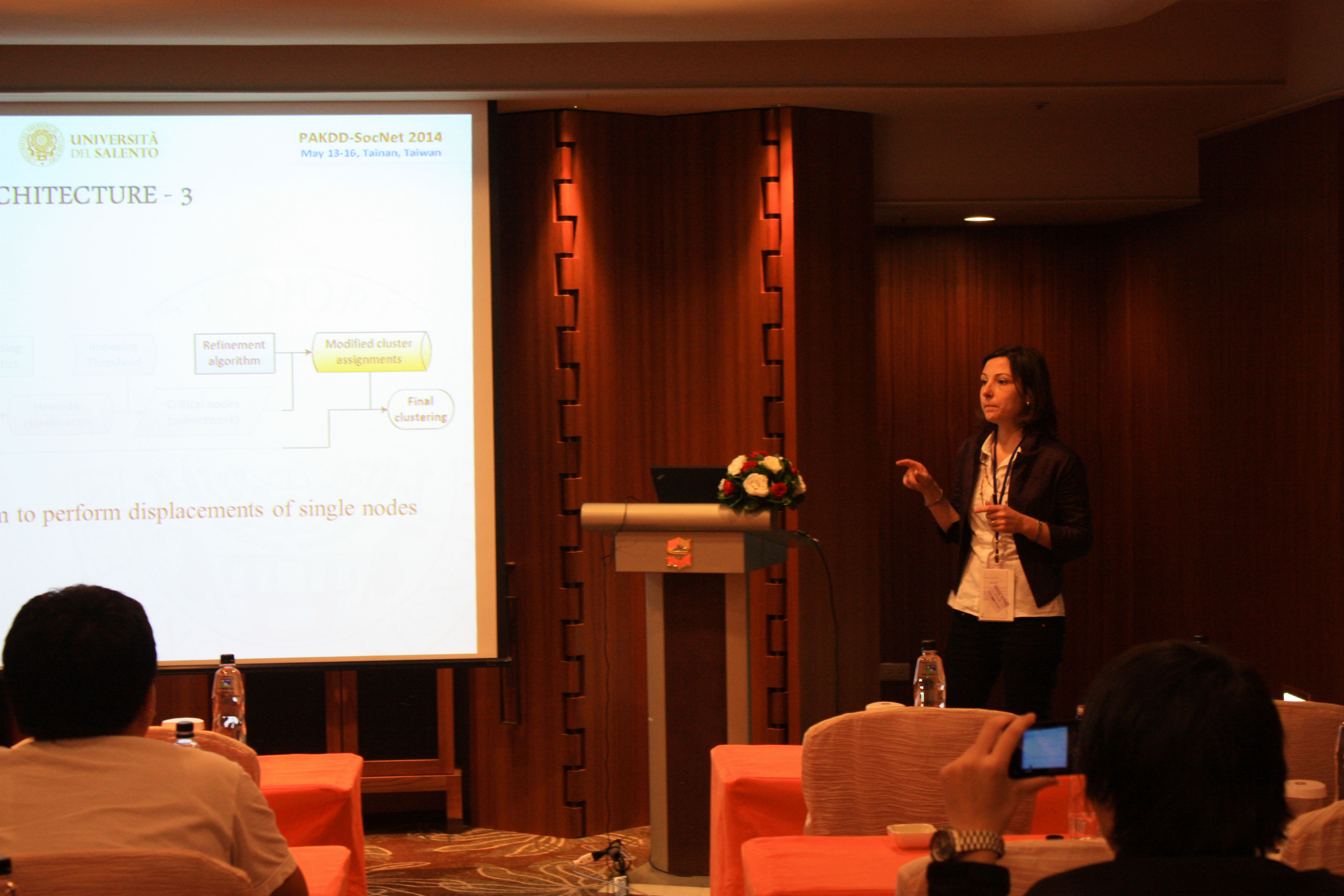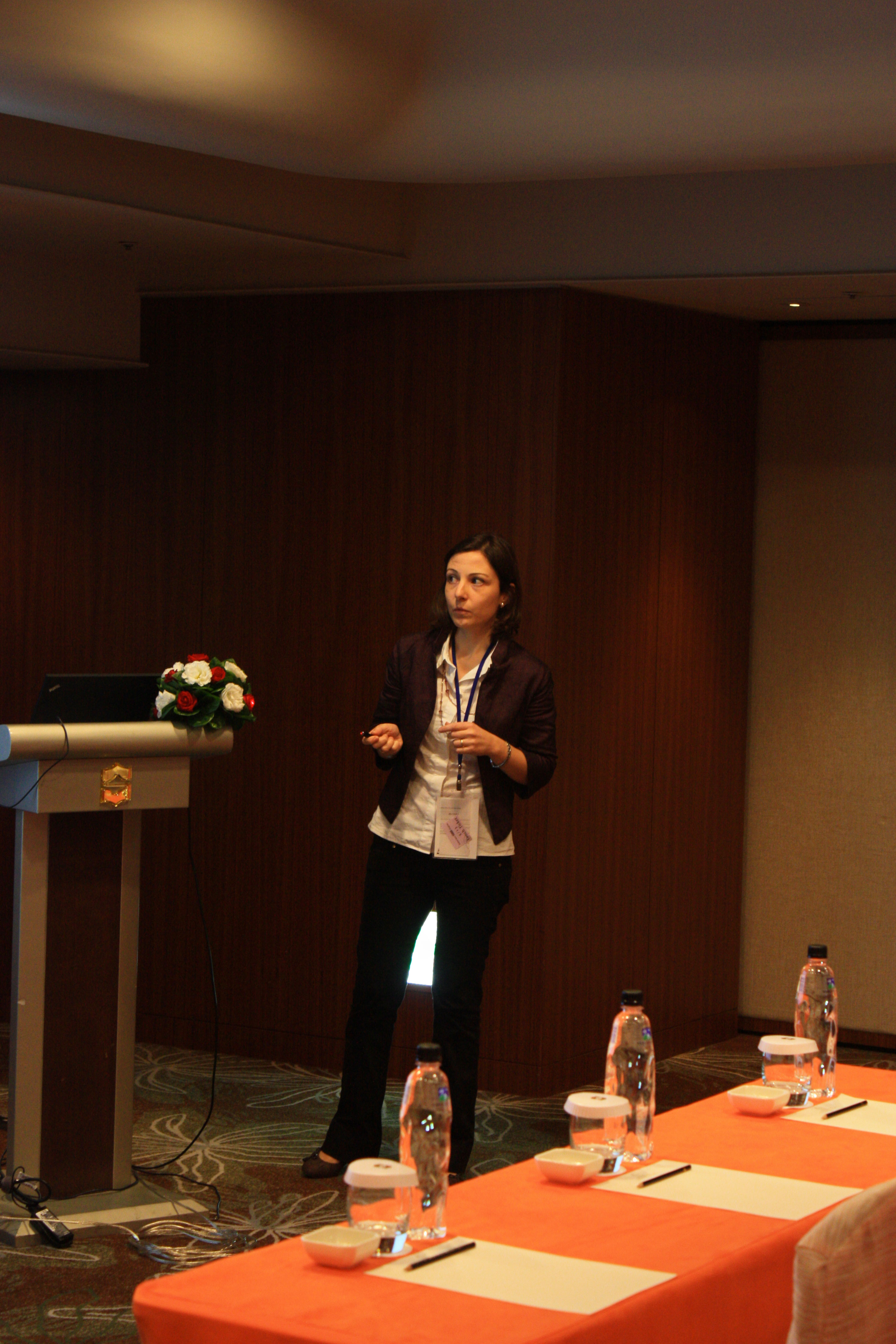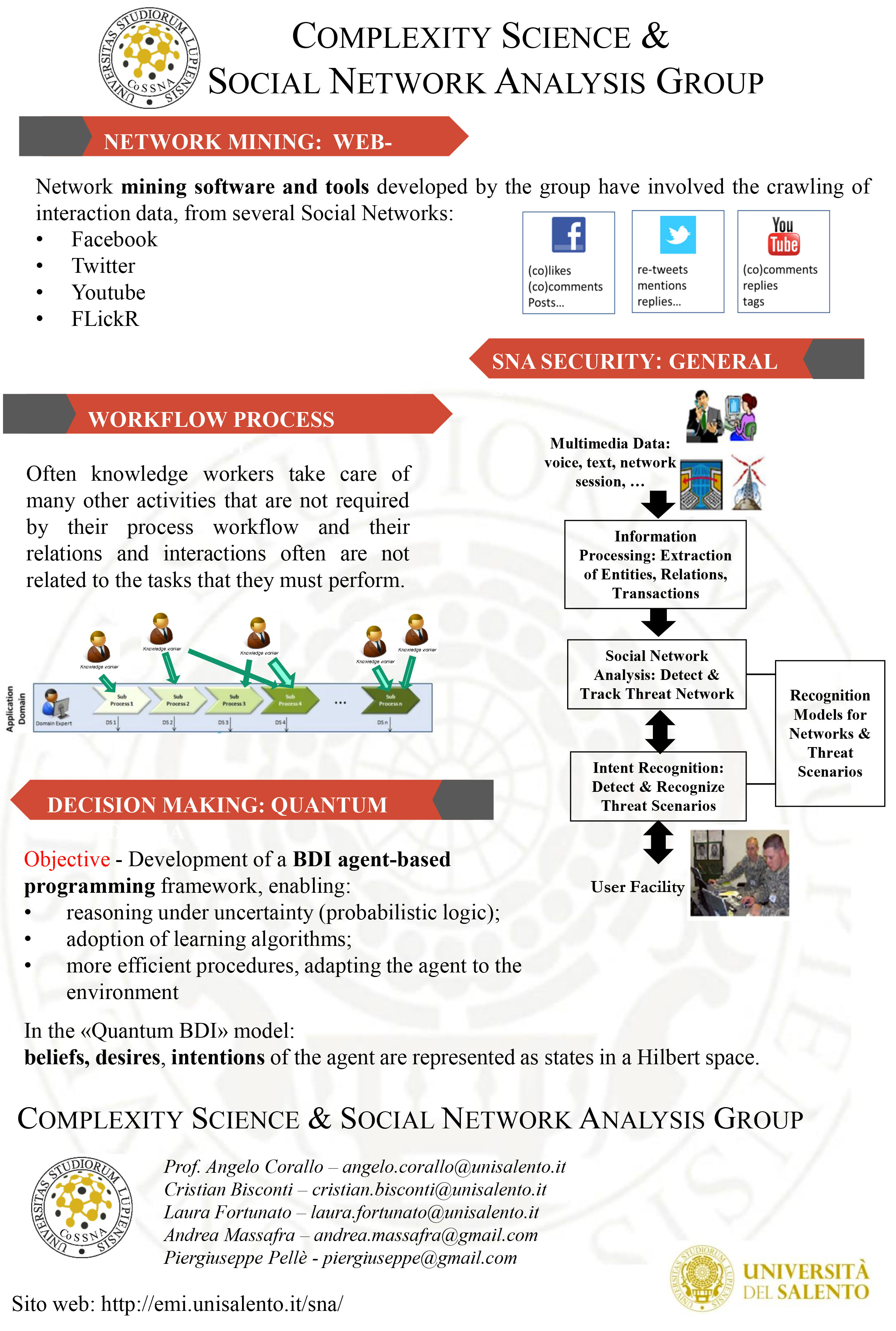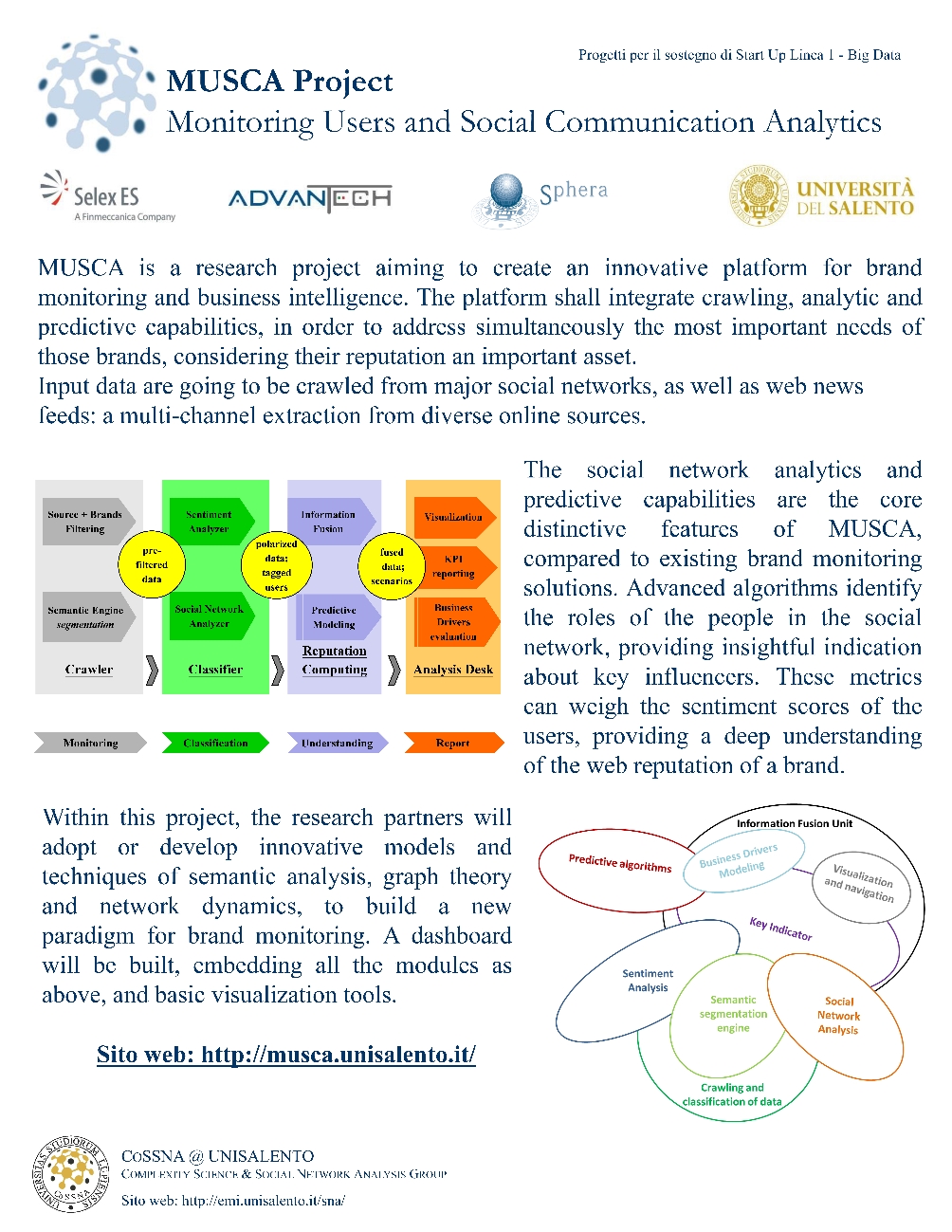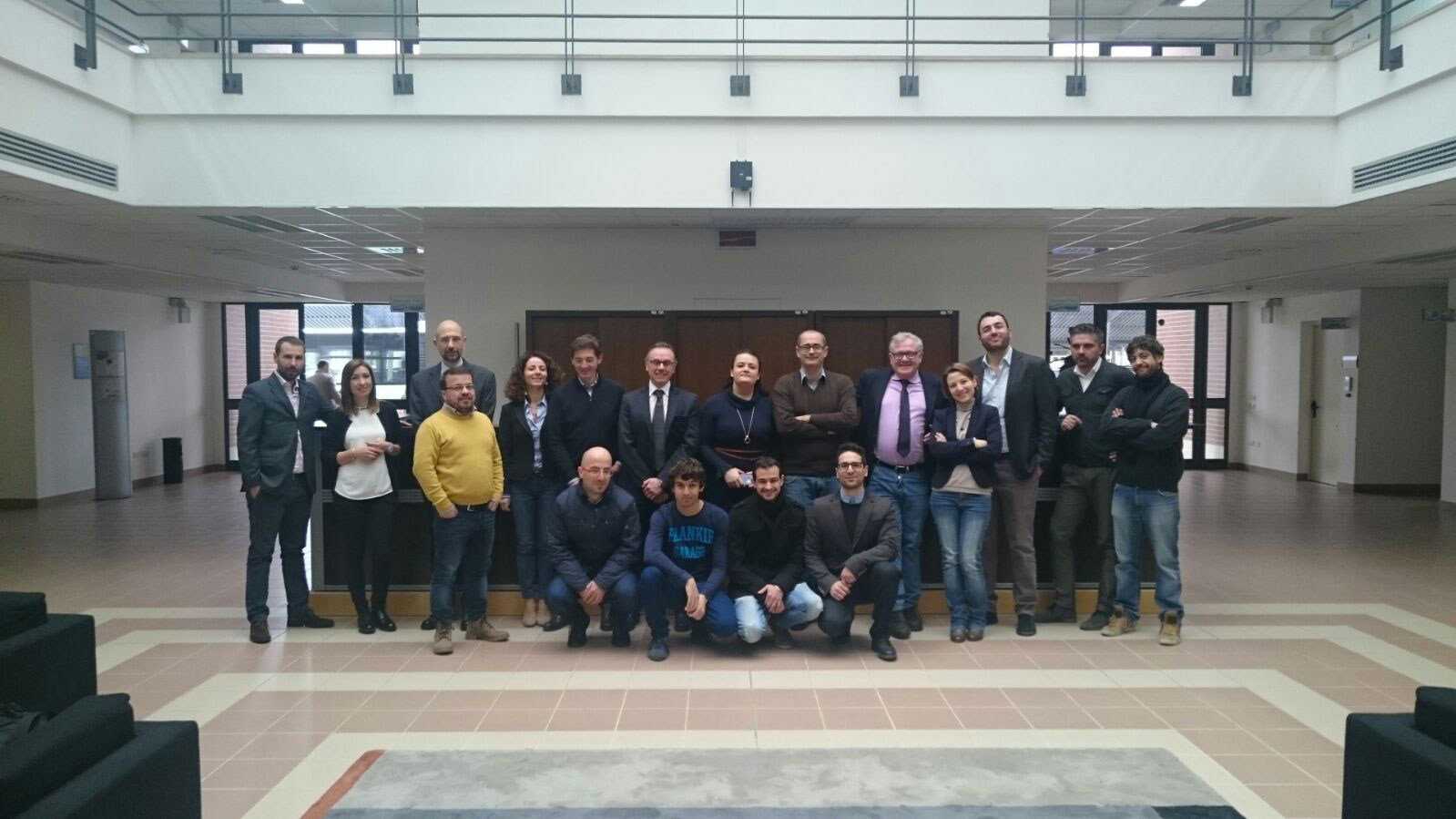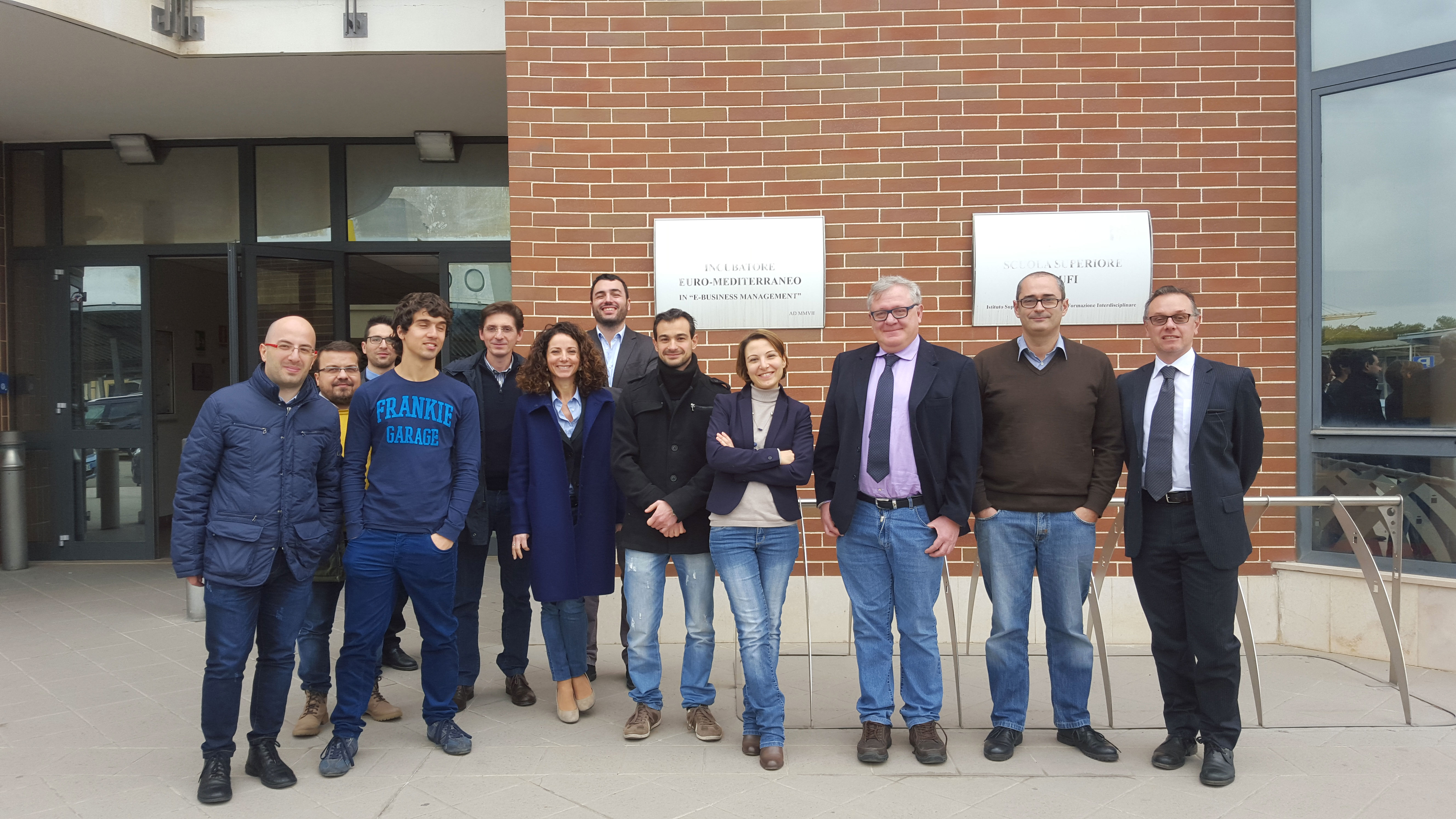Project Description
Area Description
Network Modelling and Analysis area aims to analyse, represent and model the structure and the dynamics of social, business, biological and technology complex systems through the use of networks or graphs. In a graph, each participant is called actor of the network and it is represented as a node. Actors can be individuals, organizations or groups, or any other set of related entities. Relations between actors are represented as links between nodes corresponding. The variables and the structure of the network can vary; nodes and links may appear, disappear or change their characteristics over time.
The area “Network Modelling and Analysis” uses algorithms, statistical methods, and computational tools for the acquisition, modelling and understanding of the data about the processes that characterize the networks.
- Social Network Analysis for citizen security and Terrorism Prevention;
- Brand Monitoring;
- Corporate Knowledge Discovery and Analysis.
- Data Retrieval&Tracking, from Online Social Networks, Collaborative tools log-files, Physical sensors (WiFi, RFID, etc.), Investigations and observations.
- Network Construction&Analysis for Detection of outstanding agents, Role interpretation, Information about the general structure, Link prediction & Intent recognition, Node Classification, Patterns of Interaction, Clustering & Community Detection.
- Models/algorithmic paradigms for Reconstruction of a social network, Growth/Evolution/Diffusion models in networks.
- Supervised/Unsupervised Machine Learning for Sentiment Analysis.
- Latent Semantic Analysis, Term Frequency/Inverse Document Frequency method, Clustering for Semantic Analysis.
- Visualization and Feedback to Interpret data and trends, Manage user-driven feedback loops.
- Competencies management solutions oriented to grasp, evaluate and simulate the role and weight of a knowledge worker.
- Quantum mechanical frameworks for human behavior modeling, which could enable improved decision-making (financial models, uncertainty decision, etc) and explain some key concepts in the mind-brain interaction (with applications in the Artificial Intelligence, etc).
- Programming languages: C, C#, Java, JavaScript, PHP, Python, SQL;
- Database: SQL DB, MongoDB, Neo4J Graph DB;
- Graphic libraries: SNAP;
- Statistical Analysis SW: R, Matlab, Mathematica;
- SNA SW: Pajek, UciNet, Gephi, Condor, NodeXL;
- BP Mining SW: ProM;
- Sentiment Analysis SW: SentiWordNet, Semantria;
- Search server: Lucene, SOLR;
- Social Network crawler libraries: Twitter4J, FQL.
- Social Network Analysis Analyzer, platform of monitoring communications between actors who are registered as profiles in the most common social networks.
- Agents Simulator based on mathematical methods typical of quantum mechanics.
- MUSCA Crawler, Crawling data from online sources: Facebook (FB): FB individual pages and / or groups FB ; Twitter: individual Twitter profilesand / or tweets that contain specific keywords / hashtags.
- Sentiment Analyzer: analysis of the “polarity of the text”, both globally and on a single text, always relative to the sources selected.
- Semantic Analyzer: analysis of online sources used (with text pre-processing) in order to classify the extracted text on the basis of the ontologies / taxonomies relating to the context analyzed.
- Semantic Analyzer: analysis of online sources used (with text pre-processing) in order to classify the extracted text on the basis of the ontologies / taxonomies relating to the context analyzed.
For more information please contact: Mariangela Lazoi (mariangela.lazoi@unisalento.it)
Related Projects
Initiatives and projects with
- SPHERA s.r.l.,
- Advanthec s.r.l.,
- Selex ES s.p.a.,
- Man@Work s.r.l.,
- Engineering Ingegneria Informatica s.p.a.,
- Expert System s.p.a.
- Istituto di Calcolo e Reti ad Alte Prestazioni del Consiglio Nazionale delle Ricerche-ICAR-CNR, Palermo;
- University of Salento: prof. Luigi Martina, prof. Enrico Ciavolino, prof. Gabriele Papadia, prof. Antonio Del Prete;
- Università di Roma, La Sapienza: prof. Serena Arima;
- Northeastern University: prof. Francesca Grippa;
- University of Leicester: prof. Sandro Sozzo;
- University of Roma Tor Vergata: dott. Andrea Fronzetti Colladon.
Scientific Publications
- Cristian Bisconti, Angelo Corallo, Laura Fortunato, Antonio A. Gentile (2014). A Quantum-BDI Model for Information Processing and Decision Making. INTERNATIONAL JOURNAL OF THEORETICAL PHYSICS, vol. July 2014, p. 1-14, ISSN: 1572-9575, doi: 10.1007/s10773-014-2263-x
- Cristian Bisconti, Angelo Corallo, Laura Fortunato, Antonio A. Gentile, Andrea Massafra and Piergiuseppe Pellè (2015). “Reconstruction of a real world social network using the Potts model and Loopy Belief Propagation”, Frontiers in Psychology
- Angelo Corallo, Cristian Bisconti, Laura Fortunato, Antonio Andrea Gentile and Piergiuseppe Pellè, “Statistical mechanics approach for collaborative business social network reconstruction”, submitted to SNAM (Social Network Analysis and Mining journal), Springer
- L. Fortunato, S. Lettera, M. Lazoi, A. Corallo and G.P. Guidone,A Methodology for Engineering Competencies Definition in the Aerospace Industry,Journal of Systemics, Cybernetics and Informatics, 9, 5 (2011), pag. 12-17
- Giovanna Mangialardi, Angelo Corallo, Marco Esposito, Laura Fortunato, Alessandro Monastero, Laura Schina. ” Integrated and networked approach for the lifecycle cultural heritage management” ENCAT2015, The Ecology of Culture: Community Engagement, Co-creation, Cross Fertilization, BOOK PROCEEDINGS, 6th Annual Research Session, October 21-23, 2015, Lecce, Italy
- Marco Alessi, Stefania Castelli, Valentina Chetta, Enza Giangreco, Stefano Pino, Davide Storelli, Angelo Corallo, Laura Fortunato and Andrea Gentile, “A study on the perceived representation of a real urban area through a 3D virtual environment”, Seventh International Conference on Virtual Worlds and Games for Serious Applications: VS-Games 2015
- Angelo Corallo, Cristian Bisconti, Laura Fortunato, Antonio Andrea Gentile and Piergiuseppe Pellè, “An approach from statistical mechanics for collaborative business social network reconstruction”, 2015 IEEE/ACM International Conference on Advances in Social Networks Analysis and Mining, Paris, France.
- Angelo Corallo, Laura Fortunato, Marco Matera, Marco Alessi, Alessio Camillò, Valentina Chetta, Enza Giangreco, and Davide Storelli, “Sentiment Analysis for Government: An Optimized Approach”, 11th International Conference of Machine Learning and Data Mining in Pattern Recognition, MLDM 2015, Hamburg, Germany
- E. Giangreco, L. Marasso, V. Chetta, L. Fortunato, C. Perlangeli. “Modelling tools of service value networks to support social innovation in a Smart City”, IFIP EGOV 2014 Proceedings. Ireland, vol.21 pp.206 – 215, DOI10.3233/978-1-61499-429-9-206. Also reviewer of this conference.
- Antonio A.Gentile, Angelo Corallo Cristian Bisconti Laura Fortunato. “Considerations about multistep community detection” Proceedings of PAKDD-SocNet 2014, Taiwan.
- Antonio A.Gentile, Angelo Corallo Cristian Bisconti Laura Fortunato. “Proposal for heuristics-based refinement in clustering problems” Proceedings of MMB & DFT 2014, Bamberg (Germany).
- Angelo Corallo, Laura Fortunato, Francesca Grippa, Daniele Rotolo, “Balancing Team Boundary Spanning: The Effect of Internal and External Network Structure” Proceedings of XX Annual Meeting of AiIG (Italian Association of Management Engineering), Matera, Italy,2012. ISBN: 978-88-903069-1-4
- Angelo Corallo, Cristian Bisconti, Laura Fortunato, Mariangela Lazoi, Serena Lettera, Gianpiero Guidone, “Improving Engineering Competencies Management towards an algebraic formalism and a methodological definition” Proceedings of XX Annual Meeting of AiIG (Italian Association of Management Engineering), Matera, Italy, 2012. ISBN: 978-88-903069-1-4
- Andrea Gentile, Cristian Bisconti, Laura Fortunato. “Agents reasoning under uncertainty: an extended BDI model in the JADEx framework” Proceeding of European Conference on Complex System 2014, Lucca, Italy
- L. Fortunato, S. Lettera, S. Totaro, M. Lazoi, C. Bisconti, A. Corallo and G.Pantalone, Development of a Competence Management System: an algebraic approach,Proceedings of the First International Workshop on Knowledge Management and e-Human Resources Practices for Innovation (eHR-KM), pag.123-131, 2011
- L. Fortunato, S. Lettera, S. Totaro, M. Lazoi, C. Bisconti, A. Corallo and G.Pantalone, Optimizing a Competence Management System: An Algebraic Approch, Proceedings of the 15th World Multi-Conference on Systemics, Cybernetics and Informatics (WMSCI 201) pag. 302-307, 2011
- L. Fortunato, S. Lettera, M. Lazoi, A. Corallo and G.P. Guidone, A Methodology for Engineering Competencies Definition in the Aerospace Industry, Proceedings of the 15th World Multi-Conference on Systemics, Cybernetics and Informatics (WMSCI 201) pag. 296-301, 2011
- Antonio A.Gentile, Angelo Corallo Cristian Bisconti Laura Fortunato. “Online Academic Social Networks: testing growth-models against closeness distributions”. The International Sunbelt Social Network Conference XXXIV Proceedings, St. Pete Beach, FL , February 18 – 23, 2014
- Angelo Corallo, Laura Fortunato,Antonio A. Gentile “Product performance and development environment: a collaboration perspective” The International Sunbelt Social Network Conference XXXIII Proceedings 2013, Amburgo.
- Angelo Corallo, Antonio A. Gentile, Laura Fortunato “The role of Community Detection in multi-leveled Network Analysis” The International Sunbelt Social Network Conference XXXIII Proceedings 2013, Amburgo.

